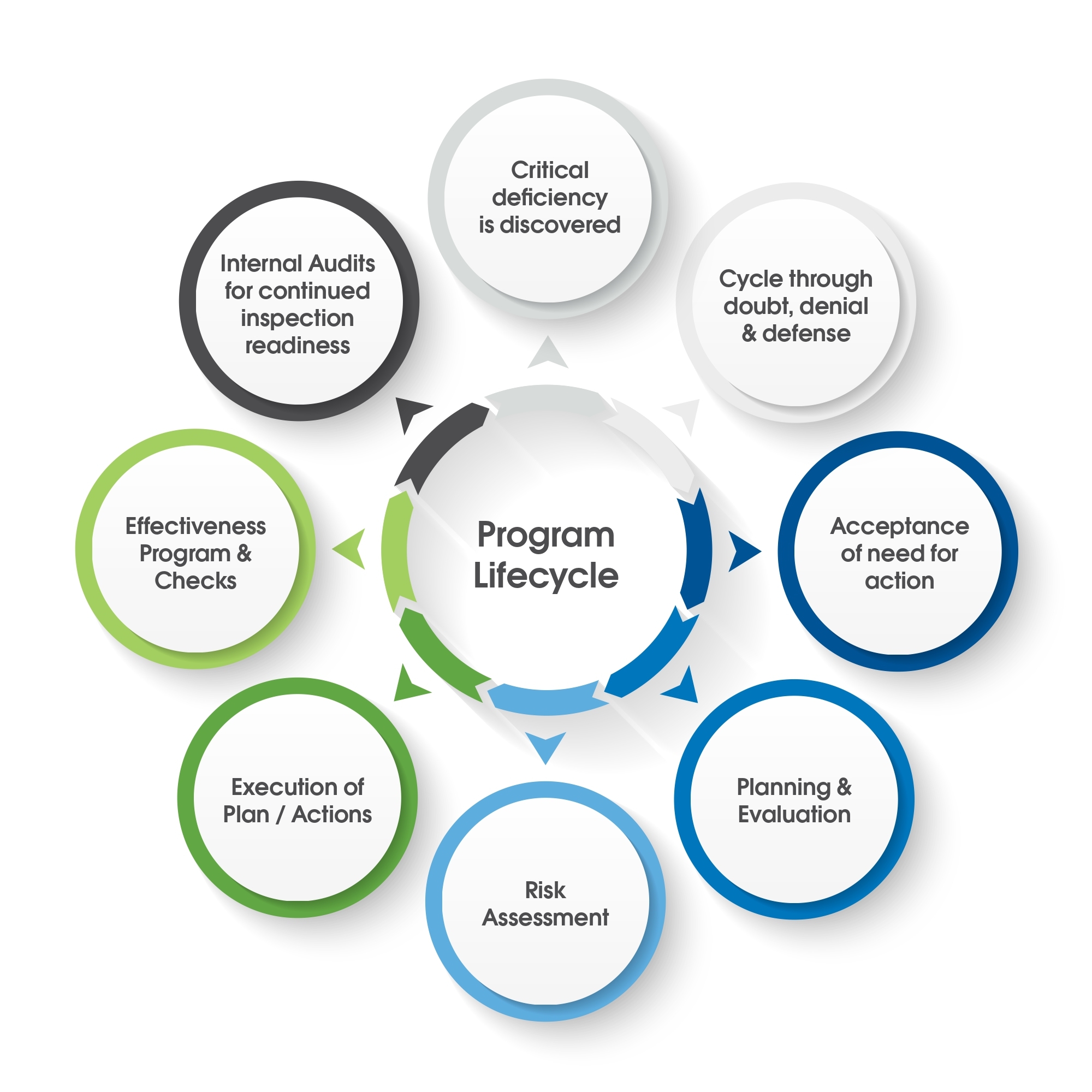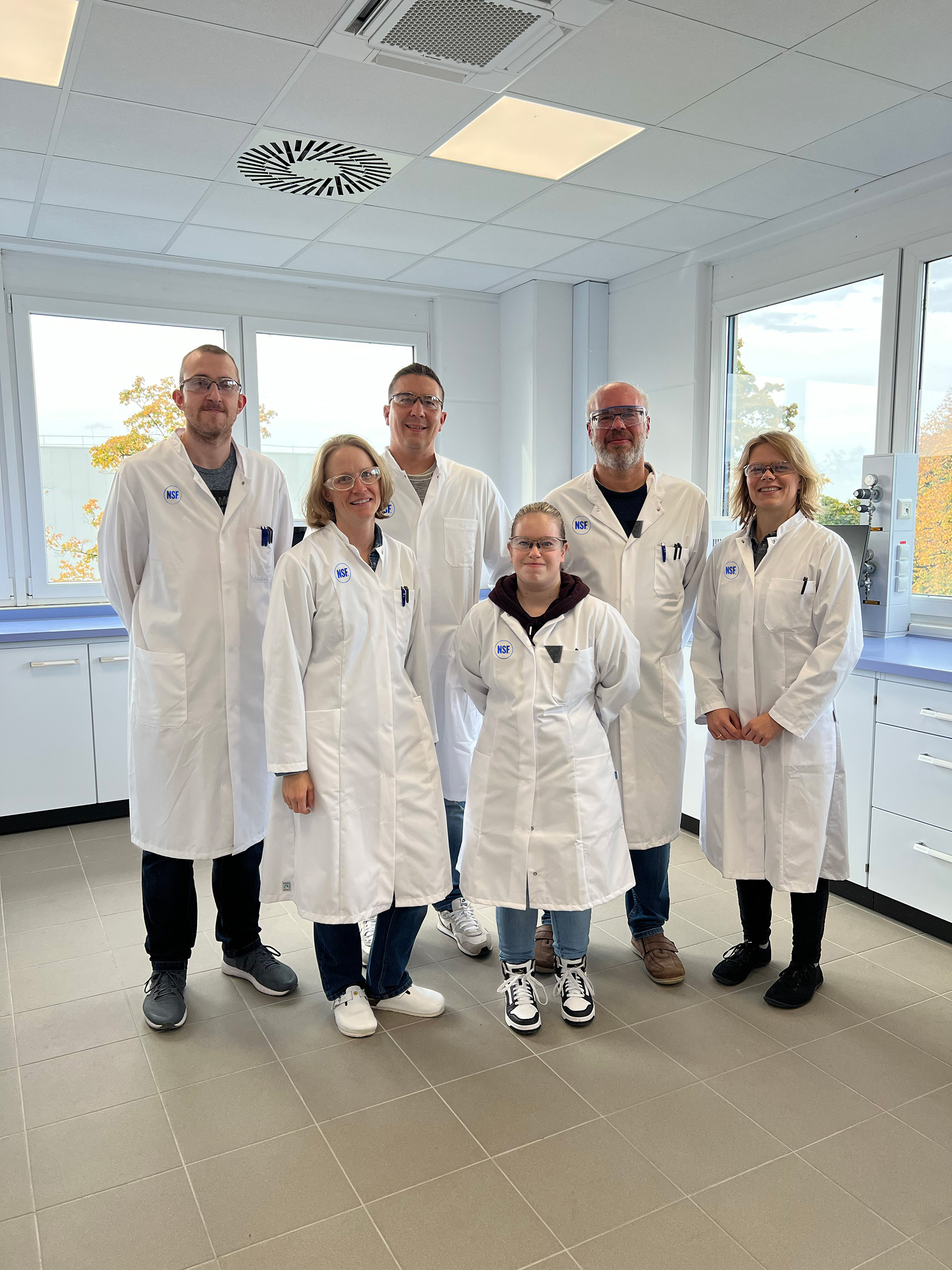Executing a Successful Remediation Program: Part 3 of 3

The third part of our three-part series on executing an effective remediation program starts by looking at the importance of communication to the overall project. We also look at, and answer, that age old question of ‘how long does a remediation project take to complete?’.
The Remediation Lifecycle
At this stage in the three-part series, it might be useful to consider the lifecycle of a remediation program.

Communication
Why is communication important in a remediation program?
In this instance, communication cannot just be one meeting with a single to do-list and a commitment to meet again when the program ends. Instead, communication needs to be ongoing throughout, and it needs to be measured and planned. So that key messages are conveyed effectively.
Remediation is a living thing that requires change and modifications to directions or goals throughout the process as the situation develops and more information is known. A simple communication program keeps everybody ‘on mission’ throughout and ensures a common understanding of why deviations or risks that have been identified and are important to solve.
Our experience at NSF has shown us that formalizing a communications plan, either in a strategic planning document or as part of a remediation playbook is useful, as it creates a written charter for how communication is going to be handled and how each role really is expected to participate. It might seem obvious that collaboration is going to be required to achieve a common goal. However, enthusiasm and urgency at the start of a campaign can cause groups, or people within groups, to focus solely on what matters to them, and not to view the project as an overall entity. At times like this, communication can breakdown and tasks get passed over or forgotten.
How Long Does a Remediation Project Take To Complete?
Remediation activity is not normally a quick to complete activity. It generally takes on average twelve to 24 months to fully execute a successful program, which is a significant amount of time to remain focused while ensuring good collaboration between all groups working on the program. Therefore, collaboration is essential to maintain focus, enthusiasm and the continuity that's required over those long months.
The complexity of such projects and the need to complete them in a time-efficient manner is essential. That is why experts, such as NSF are brought in by companies to manage their remediation programs. We have found on many projects that companies that choose to rely on their own staff to manage these projects, often end up going back to the start and working with us, as the scale of the remediation program and the demands that it puts on the in-house team is just too much. You can read about one such instance in this case study
In the above listed project, and many others, our team of experts worked with in-house staff to bring the project to a successful conclusion. The benefit with this is that, when the project ends, the company is in a much better position to manage these issues in the future, should they arise.
Do You Have the Right People?
Jim Collins wrote, in the classic business book, ‘Good To Great’ about the need to get the right people in the right seats on the bus.
Ask yourself these questions:
- Do we have the right staff to execute a remediation program?
- Do they have sufficient subject matter expertise?
It can be quite common that a member of the team is well positioned to execute the company's current systems, they may not be suited to become a change agent. In this instance, you need to consider if an external resource be a good idea to partner to create the specific strategy for any number of corrective plans, of which there will likely be many. Running a successful remediation program can be exhausting and putting the right person with the right personality and expertise in place is a critical choice. Therefore, an effective Project Manager, who can deal with competing priorities and who keeps their finger on the pulse is a necessity. Our experience has taught us that companies should only appoint an internal Project Manager, if that person has the required bandwidth to execute something as critical as this new work.
The Importance of Training and Educating Staff
To maintain the sustainability of the programs long term, the management group should consider delivering training internally to reset expectations and change behaviors. Furthermore, consideration should also be given to external training to ensure that staff are up to date with regulatory expectations and industry best practice. The need for training is something that we incorporate into our remediation plans for companies. We look at training needs such as quality planning, auditing and risk assessments, investigation methods, CAPA execution, as well as the simplification of operations.
Is It Business-As-Usual During a Remediation Program?
Organizations often wonder if business will continue as planned during an ongoing remediation program. The short answer is that this is decided for you, by the regulator, depending on the severity of the notification. in other cases, the issues might have ‘taken root’ in sufficient systems that it requires many, if not all the production to seize until some later point. Depending on the types of deficiencies discovered, it's possible to maintain your production in some fashion or another.
Irrespective of the company’s ability to remain operation or if it needs to stop manufacturing, there is a need to understand the severity of the issue and the need to work to ensure that it does not happen again. Remediation programs are not paper-based exercises. They are critical exercises that companies need to dedicate resources to dealing with.
NSF Remediation Resources
As global experts on the issue of remediation, our team of ex-regulators and industry experts have created a wealth of whitepapers, articles, webinars, and other resources to help you with any remediation related issues.
Pre-inspection:
Pre-Inspection Audits Can Help You Prepare for Regulatory Inspections
How is your company getting ready for inspections by regulatory authorities? Our experts can assist with a pre-inspection audit.
The discovery phase:
The Three Signs That You Might Need a Remediation Program
We explore why remediation projects are needed, the traits of successful programs and what to do to ensure success in your remediation efforts.
Addressing remediation phase:
Case Study: A Tale of Two Pharmaceutical Remediation Projects
Read about two similar companies and how they address remediation by implementing three key success factors.
Post program review:
Lessons Learned From a Successful Remediation Project
Discover how we worked on a complex remediation program that reduced time in an MHRA IAG referral by six months and got the company back into production within three months.
Talk to Our Experts Today
The NSF Pharma Biotech consulting and training team consists of ex-regulators and industry experts who have extensive experience of assisting companies with remediation programs. They have worked on projects with companies of all sizes all over the world.
If you have an issue that you feel that our team can assist you and your company with, then complete the form below and one of our team members will be back to you to arrange an initial call to see how we can help.
Would You Like To Learn More About Executing a Successful Remediation Program
Contact us with questions or to receive a quote.
Resources
How NSF Can Help You
Get in touch to find out how we can help you and your business thrive.

What’s New with NSF

Brooklands New Media’s Publication On NSF’s Global Animal Wellness Standards (GAWS) Not Endorsed by NSF
November 25, 2024
NSF Opens Advanced Water Testing Laboratory in Germany
October 17, 2024
World Food Day: A Global Call to Action for Food Security and Sustainability
October 16, 2024

